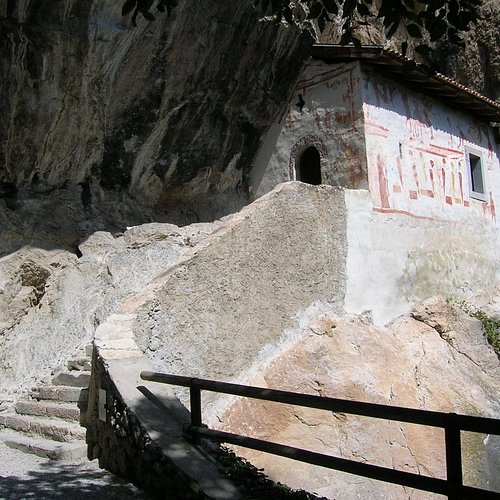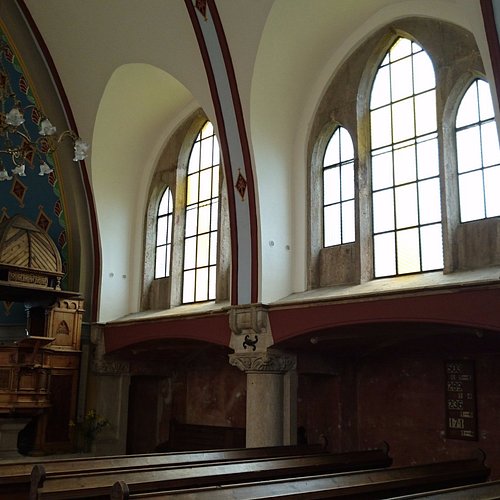Things to do in Arco, Trentino-Alto Adige: The Best Points of Interest & Landmarks
Discover the best top things to do in Arco, Italy including Eremo di San Paolo, Porta Stranfora, Il Palazzo dei Panni, Chiesa Evangelica Luterana della Trinita, Santuario della Madonna delle Grazie.
Restaurants in Arco
1. Eremo di San Paolo
Overall Ratings
4.5 based on 29 reviews
It is located on the road from Prabi to Ceniga and is a magnificent example of sacred art with enchanting frescoes both on the inside and outside. It is one of the most ancient monuments in Arco: the consecration of the high altar was first mentioned in 1186. The construction is very simple. It is built in a niche under an overhanging rock that serves as a wall and partly as the vault of the church, which consists of only one main room and one adjacent room for the hermits. Only the hall of the church is frescoed with images of the Last Supper and the stories of San Paolo’s life. The outside of the Retreat is always accessible; the inside is generally closed. The Retreat is opened for guided visits in the Spring and Autumn.
2. Porta Stranfora
3. Il Palazzo dei Panni
Overall Ratings
4.0 based on 12 reviews
The historical Palazzo Panni, built in the late XVII century and situated at the beginning of Via Segantini, was once property of the noble Arco family, as the coat of arms on the main entrance testifies. It was built by Giovambattista d’Arco, afterwards occupied by Count Emanuele d’Arco, man of culture and fine musician.At the end of the eighteenth century a wool mill was placed in the Palace, from which it took the name Wool Cloth Palace (Palazzo Panni). About 400 people worked there.In the nineteenth century it was used for different activities: as a theatre, a fire station and kindergarten.In the early nineteenth century it was purchased by the Istituto della Providenza and became a boarding school. During the fascist period it was transformed in Palazzo del Littorio (the “littorio” being the fascists' symbol).Successively it was used as a School and from the nineties, after the recent restoration, it lodges the Councillor’s Office of Culture, the Public Library, The Fondo Antico Bruno Emmert and the Municipal Art Gallery G. Segantini.
4. Chiesa Evangelica Luterana della Trinita
5. Santuario della Madonna delle Grazie
Overall Ratings
3.5 based on 15 reviews
It is located south-west of Arco on the road to Varone. The building was commissioned by Francesco d’Arco in 1478. The Franciscan convent, which still exists, was completed in 1482, and the church in 1492. Of note are the bronze entrance door of the church, and the brickworks on the façade, works by the sculptor monk Fra’ Silvio Bottes; Also his is the statue of San Francesco on the church square. In the cloister, which is placed on a lower floor, are the tombstones of Susanna Collalto, Nicolo of Arco’s mother, and of Barbara Martinengo, Andrea of Arco’s wife, who probably were once buried in the ancient church, which had been sponsored by their father-in-law.The spaces on the inside of the convent are beautiful, for their structure and proportion: there are several courtyards and rooms, among which a beautiful dining-hall where so now and then cultural and religious events are organized.You can visit the church during the day and masses are regularly celebrated by the friars.





